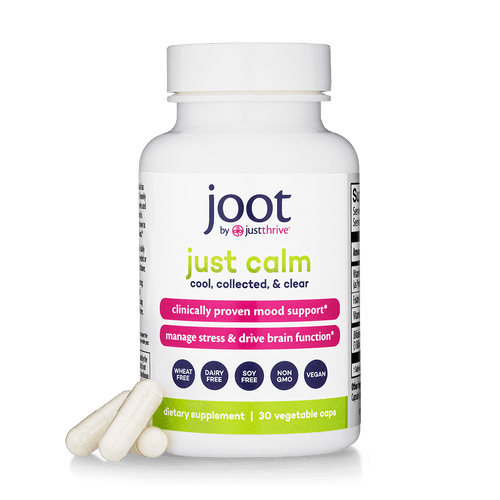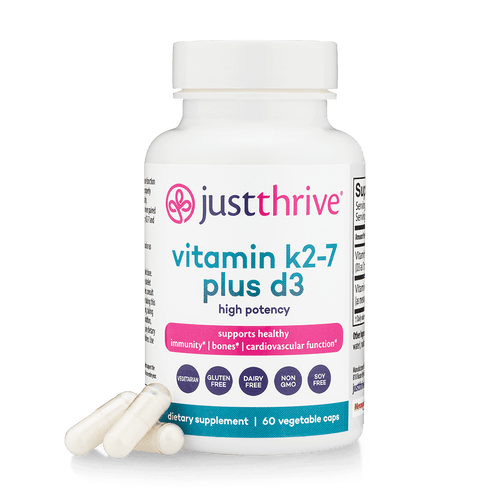The secret to quieting stress from information overload
We live in a 24/7 news cycle, and bad news dominates. We’re constantly flooded with negative information that causes stress and anxiety. Devastating natural disasters… political problems… economic uncertainty… potential pandemics.
We’re overcome by news fatigue and the hopeless feeling that there’s nothing we can do to make things better.
But there is actually a lot we can do. Both to turn down the volume on the overwhelm and to make things better.
Why the News Feels So Overwhelming
Constant news has invaded our lives. It demands attention. And it’s easy to feel completely exhausted by the never-ending streams of information thrown at us.
There are three main pieces to this news overwhelm:
1. Negativity Bias
Negativity bias is a tendency to give more weight to negative news than positive. Our brains are wired that way: Paying attention to danger and threats was crucial to survival for early humans. It was more important to avoid harmful things than to seek possibly helpful things.[1]
Now that bias pushes us to pay more attention to negative news. The extra focus also makes bad news seem more trustworthy, giving it even more weight.[2] All of that negativity fuels stress, trapping your body in an ongoing stress spiral.

2. Information Overload
Ever feel like you’re drowning in news stories? Where practically every minute there’s something else screaming for your attention? That there’s so much information you can’t sort out what’s important and what’s not? That’s information overload. And your brain is not wired to handle that constant inflow of negativity.
Living in a digital world means we’re subjected to enormous amounts of complex information every minute of every day. Our social feeds are trained to keep serving up more and more negativity. The news cycles are non-stop and intense. And research shows that information overload is one of the biggest stressors for millions of people, triggering stress and anxiety.[3]
3. Doomscrolling Habit
If you spend a huge amount of time reading negative news and social posts, falling down bad news rabbit holes, and constantly refreshing your feeds for more of the same… you have a doomscrolling habit. This practice gained traction during the pandemic and just kept going. Our “lizard brain,” the part of the brain that’s responsible for survival, is always on the alert for threats. When we feel unsafe or insecure, it drives us to find out what’s going on so we can protect ourselves.
Feeling stressed can trigger doomscrolling, which increases stress and anxiety, essentially trapping you in a stress-doomscrolling-stress cycle. And when doomscrolling starts to take over, it can begin to distort your sense of reality, making the world seem more dangerous and stressful than it actually is.[4]
Luckily, there are ways you can stay in the know without getting overwhelmed, but you’ll need to take some proactive steps. Then, you’ll be able to turn down the negative volume, get a handle on the stress and anxiety, and calm your mind and body.
Smarter Ways to Stay Informed Without the Stress
Avoiding the news completely isn’t the antidote for information overwhelm. For one, it’s virtually impossible to do. And secondly, you still want to be aware of what’s going on in the world. The trick is to consume the news intentionally, setting clear boundaries so it doesn’t overtake you. This purposeful approach gives you the information you need without locking you in a constant state of stress. And at the same time, you can take steps to help rebalance your body’s stress responses. When you’ve been stressed for a long time, your body will need help remembering how to calm down.
Here are the 5 best ways to stay informed without spiking your stress:
1. Set clear time limits on your news consumption.
Decide when you will engage with news rather than keeping up throughout the whole day. Create a news routine that works for you. For example, avoid looking at news until after you’ve eaten breakfast and pick a stopping point for the day, such as two hours before bedtime. This can help limit your stress and make it easier to sleep at night.
2. Carefully curate your news sources.
Rather than letting social media serve up news to you from anywhere, choose the news you want to view. Focus on topics you care about most and consume news from journalists and publications you trust and respect. Consider getting your news from newspapers and magazines rather than online. That will help you avoid constant refresh, links to click, and rabbit holes to fall down. If you want to go deeper on a story you read, you can be more intentional with your searches online.
3. Take planned breaks from all things digital.
Schedule digital detox days where you completely avoid online news and social media. This will help reset your nervous system and give it a chance to fully rest.
4. Shift your focus to solutions.
Information overwhelm can make you feel hopeless and helpless, like there’s so much bad there’s no way to overcome it. Focusing on actions you can take does the opposite. Transform your stress into concrete steps to restore your sense of personal power. Whether that’s getting more involved in your community, writing letters to your representatives, seeking out uplifting or transformative stories, or donating to your favorite causes, you can turn your worries into positive actions.
5. Use science-backed stress support.
There are a lot of things you can do to help your body manage stress more effectively, and that will help calm your stress even when you stay engaged. Proven ways to help balance your stress response include:[5]
- Mindful meditation[6]
- Yoga[7]
- Spending time in nature[8]
- Exercise[9]
- Progressive muscle relaxation[10]
- Smart supplementation to support your brain, mood, and stress response
Incorporating these practices can help keep your nervous system calmer and make it easier to manage stress. And you can take stress management to the next level with a special stress-relieving probiotic.
The Role of B. longum 1714™ in Managing Stress
When you think about calming anxiety and managing stress, you probably don’t think about probiotics. But research shows that a unique probiotic strain called Bifidobacterium longum 1714™ (B. longum 1714™) can help you feel calmer and less stressed. It works sort of like noise-canceling headphones for stress, lowering the noise of the stressors flying at you all day.
Scientists have learned that quiets your body’s stress signals, helping you fully destress.[11] And more research shows us exactly how:
- B. longum 1714™ has a positive impact on nervous brain activity in people experiencing social stress[12]
- It increases calming theta wave activity in the brain[12]
- It helps people feeling stress to manage negative emotions more effectively[12]
- B. longum 1714™ promotes mental clarity during periods of stress[13], which may help counteract the effects of information overload
- It improves stress management and supports visual and spatial memory[14]
- It supports healthy sleep quality and duration even during stressful times[15]
B. longum 1714™ gives your body and mind much-needed support to help you overcome information overwhelm.
Turn Down Information Overwhelm with Just Calm
With so much happening in the world, you need all the support you can get to help you manage the stress and overwhelm triggered by the constant influx of bad news. That’s where Just Calm really shines.
Just Calm contains Bifidobacterium longum 1714™, the clinically studied stress-soothing probiotic along with stress management vitamins B6, B9, and B12. This combination gives your body what it needs to turn down the volume on stressors so you can feel calm and clear no matter what the news says.
>> Use science-backed support to take control of stress and overwhelm with Just Calm
And if you’re not sure Just Calm will be right for you… We can help. We’re confident that when you use Just Calm as directed, you’ll notice how effectively your body manages stress.
But if you’re not totally happy, we’ve got you covered.
At Just Thrive we offer you complete purchase protection, a 100% guarantee.
But if for any reason you don’t notice a difference, you can request a full product refund at any time. It doesn’t matter if it’s 3 months or even 3 years later. It doesn’t even matter if the bottle is empty! You’ll get your money back any time, no matter what.
>> Try Just Calm, 100% RISK FREE, and save 30% on your first month’s subscription with code SUB30.
Sources
- Norris CJ. The negativity bias, revisited: Evidence from neuroscience measures and an individual differences approach. Soc Neurosci. 2021 Feb;16(1):68-82.
- Hilbig B. Good things don’t come easy (to mind): Explaining framing effects in judgments of truth. Experimental Psychology. 2011;59(1):38-46.
- Arnold M, Goldschmitt M, Rigotti T. Dealing with information overload: a comprehensive review. Front Psychol. 2023 Jun 21;14:1122200.
- Satici SA, Gocet Tekin E, Deniz ME, Satici B. Doomscrolling Scale: its Association with Personality Traits, Psychological Distress, Social Media Use, and Wellbeing. Appl Res Qual Life. 2023;18(2):833-847.
- Worthen M, Cash E. Stress Management. [Updated 2023 Aug 14]. In: StatPearls [Internet]. Treasure Island (FL): StatPearls Publishing; 2025 Jan-. Available from: https://www.ncbi.nlm.nih.gov/books/NBK513300/
- Bamber M, et al. Mindfulness-based meditation to decrease stress and anxiety in college students: A narrative synthesis of the research. Educational Research Review Volume 18, May 2016, Pages 1-32
- Khajuria A, Kumar A, Joshi D, Kumaran SS. Reducing Stress with Yoga: A Systematic Review Based on Multimodal Biosignals. Int J Yoga. 2023 Sep-Dec;16(3):156-170.
- Chang, Cc., Lin, B.B., Feng, X. et al. A lower connection to nature is related to lower mental health benefits from nature contact. Sci Rep 14, 6705 (2024).
- Childs E, de Wit H. Regular exercise is associated with emotional resilience to acute stress in healthy adults. Front Physiol. 2014 May 1;5:161.
- Muhammad Khir S, et al. Efficacy of Progressive Muscle Relaxation in Adults for Stress, Anxiety, and Depression: A Systematic Review. Psychol Res Behav Manag. 2024 Feb 1;17:345-365.
- Allen, A., Hutch, W., Borre, Y. et al. Bifidobacterium longum 1714 as a translational psychobiotic: modulation of stress, electrophysiology and neurocognition in healthy volunteers. Transl Psychiatry 6, e939 (2016).
- Wang H, Braun C, Murphy EF, Enck P. Bifidobacterium longum 1714™ Strain Modulates Brain Activity of Healthy Volunteers During Social Stress. Am J Gastroenterol. 2019 Jul;114(7):1152-1162.
- Savignac HM, Tramullas M, Kiely B, Dinan TG, Cryan JF. Bifidobacteria modulate cognitive processes in an anxious mouse strain. Behav Brain Res. 2015;287:59-72.
- Allen AP, Hutch W, Borre YE, Kennedy PJ, Temko A, Boylan G, Murphy E, Cryan JF, Dinan TG, Clarke G. Bifidobacterium longum 1714 as a translational psychobiotic: modulation of stress, electrophysiology and neurocognition in healthy volunteers. Transl Psychiatry. 2016 Nov 1;6(11):e939.
- Moloney GM, Long-Smith CM, Murphy A, Dorland D, Hojabri SF, Ramirez LO, Marin DC, Bastiaanssen TFS, Cusack AM, Berding K, Fouhy F, Allen AP, Stanton C, Clarke G, Dinan TG, Cryan JF. Improvements in sleep indices during exam stress due to consumption of a Bifidobacterium longum. Brain Behav Immun Health. 2020 Nov 13;10:100174.














